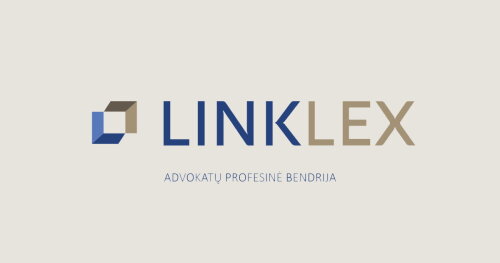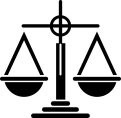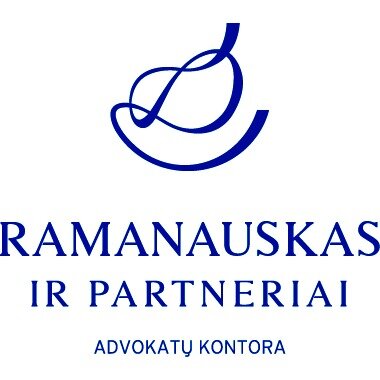Best Transportation Lawyers in Republic of Lithuania
Share your needs with us, get contacted by law firms.
Free. Takes 2 min.
Or refine your search by selecting a city:
List of the best lawyers in Republic of Lithuania
About Transportation Law in Republic of Lithuania
Transportation law in the Republic of Lithuania covers regulations and rules governing the transportation of goods and individuals within the country. This area of law is important to ensure the safety and efficiency of the transportation network, including roadways, railways, air travel, and maritime transport.
Why You May Need a Lawyer
There are several situations where you may need a lawyer specializing in transportation law in Lithuania. This can include disputes over transportation contracts, accidents involving different modes of transportation, issues with licensing and permits, and compliance with local regulations.
Local Laws Overview
In Lithuania, transportation laws are governed by various regulations and statutes, including the Law on Road Transport, the Law on Aviation, and the Law on Rail Transport. These laws cover a wide range of topics such as licensing requirements, safety regulations, liability in case of accidents, and environmental protection measures.
Frequently Asked Questions
Q: What are the requirements for obtaining a transportation license in Lithuania?
A: To obtain a transportation license in Lithuania, you must meet certain criteria set forth by the relevant authorities, including financial stability, safety standards, and compliance with regulations. It is recommended to consult with a lawyer for assistance in this process.
Q: What should I do if I am involved in a transportation accident in Lithuania?
A: In case of a transportation accident in Lithuania, it is important to seek legal advice to understand your rights and responsibilities. A lawyer can help you navigate the legal process, determine liability, and seek compensation for any damages or injuries sustained.
Q: What are the penalties for non-compliance with transportation regulations in Lithuania?
A: Non-compliance with transportation regulations in Lithuania can result in fines, suspension of licenses, and other sanctions. It is important to ensure that your transportation operations are in compliance with local laws to avoid legal consequences.
Q: How can a lawyer help me with transportation contract disputes in Lithuania?
A: A lawyer specializing in transportation law can review your contracts, identify any potential issues, and represent your interests in case of disputes. They can help you negotiate settlements, handle litigation, and ensure that your rights are protected under the law.
Q: What are the key environmental regulations relevant to transportation in Lithuania?
A: Environmental regulations in Lithuania related to transportation include emissions standards, waste management requirements, and measures to reduce pollution from vehicles and other modes of transportation. Compliance with these regulations is essential to protect the environment and public health.
Q: How can I challenge a decision made by the transportation authorities in Lithuania?
A: If you disagree with a decision made by the transportation authorities in Lithuania, you have the right to challenge it through legal means. A lawyer can help you file appeals, present evidence, and argue your case before the appropriate judicial bodies.
Q: Are there any restrictions on the types of goods that can be transported in Lithuania?
A: Yes, there are restrictions on the types of goods that can be transported in Lithuania, including hazardous materials, controlled substances, and other regulated items. It is important to familiarize yourself with these restrictions to avoid legal issues and ensure compliance with the law.
Q: What are the limitations on working hours for transportation workers in Lithuania?
A: Transportation workers in Lithuania are subject to regulations on working hours to prevent fatigue and ensure safety on the roads. These limitations vary depending on the mode of transportation and the type of work involved, and it is important to comply with these rules to prevent legal consequences.
Q: How can I ensure that my transportation operations are in compliance with local laws in Lithuania?
A: To ensure that your transportation operations are in compliance with local laws in Lithuania, it is advisable to consult with a lawyer specializing in transportation law. They can review your operations, identify any potential issues, and provide guidance on how to comply with regulations and avoid legal problems.
Q: What are my rights as a consumer of transportation services in Lithuania?
A: As a consumer of transportation services in Lithuania, you have certain rights, including the right to safety, fair pricing, and protection from fraud or discrimination. If you believe that your rights have been violated, you can seek legal advice to understand your options for recourse.
Additional Resources
For more information on transportation law in Lithuania, you can contact the Lithuanian Ministry of Transport and Communications or consult with legal organizations such as the Lithuanian Bar Association. These resources can provide valuable guidance and support for individuals in need of legal advice related to transportation.
Next Steps
If you require legal assistance in transportation law in Lithuania, it is recommended to contact a qualified lawyer with experience in this field. They can provide you with personalized advice, represent your interests in legal proceedings, and help you navigate the complexities of transportation regulations in the country.
Lawzana helps you find the best lawyers and law firms in Republic of Lithuania through a curated and pre-screened list of qualified legal professionals. Our platform offers rankings and detailed profiles of attorneys and law firms, allowing you to compare based on practice areas, including Transportation, experience, and client feedback.
Each profile includes a description of the firm's areas of practice, client reviews, team members and partners, year of establishment, spoken languages, office locations, contact information, social media presence, and any published articles or resources. Most firms on our platform speak English and are experienced in both local and international legal matters.
Get a quote from top-rated law firms in Republic of Lithuania — quickly, securely, and without unnecessary hassle.
Disclaimer:
The information provided on this page is for general informational purposes only and does not constitute legal advice. While we strive to ensure the accuracy and relevance of the content, legal information may change over time, and interpretations of the law can vary. You should always consult with a qualified legal professional for advice specific to your situation.
We disclaim all liability for actions taken or not taken based on the content of this page. If you believe any information is incorrect or outdated, please contact us, and we will review and update it where appropriate.
Browse transportation law firms by city in Republic of Lithuania
Refine your search by selecting a city.














